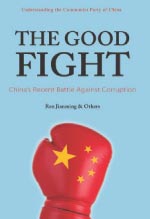
Resolutely fighting corruption is a clear-cut political commitment the Communist Party of China has always upheld, and an important political issue that the people show great concern about. General Secretary Xi Jinping pointed out, "The resolute determination in punishing and wiping out corruption demonstrates the strength of our Party, and it is a common aspiration of all Party members and the public as well." Meanwhile, he stressed more sharply that, for the Party to supervise its conduct with strict discipline, punishment should never be relaxed; it was necessary to continue to catch both the "tigers" and "flies," ie, dealing with cases of leading officials in violation of Party discipline and state laws as well as misconduct and corruptions problems that directly affect the people's livelihood.
Punishment is an important component of China's anti-corruption strategy. On the one hand, it directly hits at the conduct of actual corruption to make the corrupt pay the price, and on the other, it deters potential corruption to scare those who are ready to commit corruption. In terms of the so-called "magnitude" of corruption, the focal point of China's fight against corruption has undergone two rounds of change, ie, from "investigating and punishing cases but usually small ones" to "investigating and punishing major cases" and then to "hunting down both tigers and flies." In most countries, the means of punishment usually include sanctions by law and by discipline. China's policy against corruption also attaches equal importance to both.
-From The Good Fight: China's Recent Battle Against Corruption
Related:
|
|
|
|
|
|
